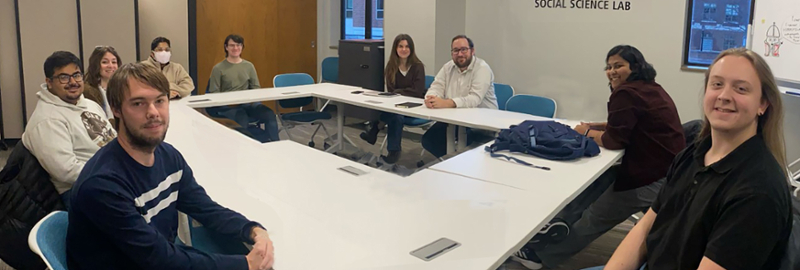
About
TL; DR: Computational social science is the wave of the future. Dr. Dietrich and his lab are helping lead the way.
The meteoric rise of computational social science (CSS) over the last decade cannot be understated. With literally thousands of papers being published using methodological techniques unheard of in previous decades, scholars have greatly improved our understanding of important phenomena, ranging from social inequality to the spread of misinformation. The Computational Social Science Lab at Purdue University aims to be at the forefront of this rapidly developing field both on and off campus.
According to Lazer et al. 2022, CSS is defined "as the development and application of computational methods to complex, typically large-scale, human (sometimes simulated) behavioral data" (1060). CSS is "complex" because it often explores non-linear relationships that are manifested across non-traditional data sources, like text, audio and video data. It is "large-scale,'' because computational social scientists often grapple with understanding the ebb and flow of millions of dependent observations, often requiring extensive computing resources. However, underlying these new methodological advances is a genuine desire to understand human behavior, making CSS a perfect bridge between the technical and theoretical world.
The Computational Social Science Lab at Purdue focuses specifically on audiovisual data, like what is often broadcast on television stations, like C-SPAN. We are also interested in the complex social interactions that occur everyday in public spaces, like city sidewalks. These encounters are often captuerd on large-scale camera networks, making both description and inference incredibly difficult. We encourage any student or scholar who is interested in this line of research to contact Dr. Dietrich, regardless of past experience. CSS is truly an interdisciplinary field, so all are welcome to join our team.
"Big data" and machine learning are becoming increasingly synonymous with our social and political world. We are excited to hear about your thoughts on how we can begin to harness these technologies to help advance the public good! #BoilerUp
References:
Lazer, David M. J., et al. 2020. "Computational Social Science: Obstacles and opportunities." Science 369 (6507): 1060-1062.